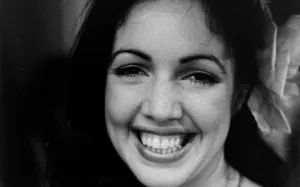Iconic TV host Jerry Springer has died. He was 79 years old. TMZ reported the sad news on Thursday morning, stating that a spokesperson for Springer’s family confirmed that he’d been diagnosed with cancer in recent months.
“Jerry’s ability to connect with people was at the heart of his success in everything he tried whether that was politics, broadcasting or just joking with people on the street who wanted a photo or a word,” said Jene Galvin, family spokesperson, who was also a lifelong friend of Springer’s. “He’s irreplaceable and his loss hurts immensely, but memories of his intellect, heart and humor will live on.” Springer died at his Chicago area home this week, after his cancer diagnosis rapidly grew worse unexpectedly.
Videos by PopCulture.com
Springer became a household name in the 1990s, thanks to his daytime talk show that ran for nearly three decades. Prior to that he had a career as a lawyer and was the mayor of Cincinnati, Ohio from 1977 to 1978 and served on Cincinnati’s city council prior to that. During a past conversation with the Columbia Journalism Review, Springer spoke about his talk show hosting career and revealed that he previously worked as a journalist, but that it had little to do with him getting the hosting job.
“For 10 years, I was a city councilman and mayor of Cincinnati. When I couldn’t run again, NBC offered me a job to anchor their news on the NBC affiliate there in Cincinnati, figuring that if I had been a councilman and mayor for 10 years that I knew the city and therefore might have some credibility,” he shared. “So I never even thought about it, but they offered me the job and I didn’t know yet if I would run again for another office or something like that. So I figured [I’d] give it a shot.”
“And, basically, that’s how I got into it: It was handed to me. I wasn’t so interested in anchoring. I was more interested in doing political commentary. So we worked out a deal that I would agree to anchor the news at what turned out to be 5:36 and 11,” Springer went on to say. “But at the end of every newscast, I could do a two-minute commentary on something that happened in the news that day. And that kind of became the staple, and it became popular in Cincinnati for 10 years, and that’s how you wind up getting a talk show.”








